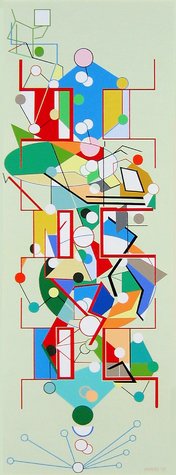Call For Papers
Please note the following significant differences from previous ICAPS:- Paper submission dates: April 13 (abstracts) and April 18 (full papers)
- Conference dates: September 22-26, 2007
- Papers 8 pages maximum
- Papers will be accepted for oral or poster presentation
- No distinction will be made between papers and posters in the proceedings
Important Dates
- Abstract submission: April 13, 2007
- Paper submission: April 18, 2007
- Notification of acceptance: June 11, 2007
- Camera-ready copy (updated): June 27, 2007
Topics
- anytime planning and scheduling
- applications and case studies fielding planning and scheduling
- complexity analysis for planning and scheduling
- constraint reasoning and OR for planning and scheduling
- deductive planning
- distributed and multi-agent planning and scheduling
- domain-independent classical planning
- domain analysis for planning and scheduling
- dynamic scheduling
- hierarchical task network planning
- knowledge acquisition and engineering for planning and scheduling
- machine learning for planning and scheduling
- methodologies and tools for specification, design, implementation, and validation of planning and scheduling systems
- mixed-initiative planning and scheduling
- model-based reasoning for planning and scheduling
- plan and schedule execution, monitoring and repair
- plan recognition
- planning and scheduling under uncertainty
- planning with resources and time constraints
- reasoning about actions
- real-time planning and scheduling
- robot planning
- scalability in planning and scheduling
- search for planning and scheduling
- visualization of plans and schedules
Paper Submission
Papers should be submitted electronically, in PDF format, through the ICAPS-07 confmaster site. Before registering as a new author in confmaster, please check that you do not already have a login from previous years, by clicking on "login and password forgotten". Reviewing will be blind to the identity of the authors. Please write the confmaster paper ID in place of the authors name on your submission and avoid refering to your own work as such in the paper. Papers should be formatted in accordance with the AAAI style template and may be at most 8 pages long, including figures and bibliography. Visit the url http://www.aaai.org/Publications/Author/author.php for formatting instructions. Papers should be submitted to one of three tracks:- Regular track: for papers containing theoretical or experimental results that significantly advance the state of the art in planning and scheduling.
- Application track: for papers reporting on significant applications in operational settings.
- Systems track: for papers that describe the integration of diverse component technologies into complex planning, scheduling and execution systems. Participants in the Knowledge Engineering competition are encouraged to submit full papers on their KE tools to the Systems track.
The number of papers accepted in each track will depend on the number and quality of papers submitted.
Submissions will be judged according to their scientific and technical merits as well as their relevance to the themes of the conference. For all tracks, papers should clearly identify previous and related work, the contributions of the work described in the paper, and remaining gaps and/or future directions. Papers should provide sufficient technical background to be accessible to the general planning and scheduling community, not just to a specialist in a narrow sub-field. As in 2006, the reviewing will be double blind.
Submitted papers may be accepted for oral or poster presentation. Both modes of presentation will be allocated the same number of pages in the proceedings. The decision between oral or poster presentation will largely be based on the attractiveness of the paper to the wider ICAPS audience (ie: oral presentations should appeal to a broad audience, posters may appeal to a more specialised audience). In either case, authors of accepted papers will be expected to present their work at the conference. We encourage authors of accepted papers involving experimental results to make their systems and data available on the web and to demonstrate their systems at the conference.
Conference Chairs
- Mark Boddy, Adventium Labs, USA
mark.boddy at adventiumlabs.org - Maria Fox, University of Strathclyde, Glasgow, Scotland, UK
Maria.Fox at cis.strath.ac.uk - Sylvie Thiebaux, NICTA & The Australian National University, Australia
Sylvie.Thiebaux at anu.edu.au

Ome © Marjorie Mikasen 2005